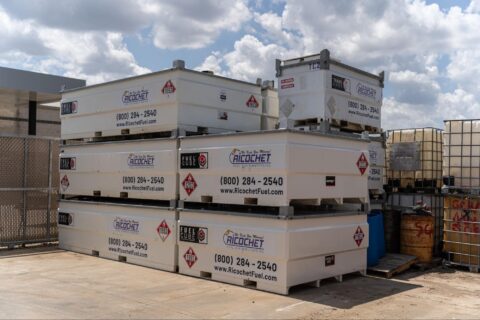The True Cost of Fuel Waste & How Businesses Can Minimize It
Fuel might seem like just another basic business expense, another line on the balance sheet. However, you begin to see the full picture when you step back. Even the most overlooked costs arise from ballooning expenses, wear and tear on vehicles and equipment, and fuel waste, which erodes your profits and performance.
The good news? You can manage it as much as you wish. Reducing fuel consumption is likely the simplest way to cut costs and, consequently, enhance sustainability. This guide will explain what fuel waste truly costs you and how savvy businesses are implementing cost-effective ways to manage fuel usage.
What Fuel Waste Is Costing You
We often focus on how much we’re spending at the pump. But fuel waste adds hidden costs that aren’t always obvious—until they pile up.
#1 It Hits Your Wallet
Every unnecessary trip, or engine left idling, or poorly planned route. The extra cost will run into thousands per month for large businesses. You are on the verge of watching money go up in smoke without proper systems.
#2 It Wears Down Your Equipment
Engines that are being powered harder than they should be? Of course, it means that your equipment or vehicles are going to be repaired more often, resulting in a shorter usage period. That’s not just wasteful—it’s expensive.
#3 Bad for the Planet (and reputation)
Wasted fuel means more emissions. In today’s green-focused world, companies should help customers and regulators, too. In the long run, harming your brand can fail to demonstrate your image on reduce impact.
What Causes Fuel Waste in the First Place?
Fuel waste doesn’t happen overnight. It’s often the result of small, everyday habits that add up over time. Let’s look at a few common causes:
- Unnecessary Idling – Letting the engine run while waiting or during short stops.
- Inefficient Routes – Longer routes or detours that could’ve been avoided with better planning.
- Poor Maintenance – Vehicles and equipment that aren’t properly tuned tend to burn more fuel.
- Driver Habits – Sudden braking, speeding, or even skipping tyre checks can cause fuel to burn faster.
- Lack of Oversight – If you’re not tracking fuel usage, it’s easy to miss red flags like leaks, theft, or simple misuse.
How Can Businesses Reduce Fuel Waste and Save Money?
The great thing about tackling fuel waste is that most fixes are simple, practical, and scalable. Here are some of the most effective fuel-saving techniques and business fuel efficiency tips you can start using today.
1. Use a Fuel Management System
Want to know where your fuel is going? Modern fuel management solutions help you track fuel usage in real-time, flag unusual consumption, and keep tabs on driver behaviour. You can even detect fuel theft or inefficient practices before they spiral out of control.
2. Educate Your Team
Your drivers, machine operators, and field staff play a huge role in fuel efficiency. Training them on fuel waste prevention—like avoiding idling, gentle driving, and performing daily checks—can lead to a major drop in fuel usage.
3. Keep Vehicles and Equipment in Shape
A well-maintained engine is a happy engine. Make sure tyres are properly inflated, oil is fresh, and filters are clean. Scheduled maintenance reduces fuel consumption and helps avoid bigger (and more expensive) repairs down the road.
4. Plan Smarter Routes
If you’re in transportation or delivery, route planning is everything. Use navigation tools that help avoid traffic jams, road closures, or zigzag routes. Shorter, smoother trips mean lower fuel bills.
5. Track and Set Goals
Track your team’s fuel usage by department, route, or vehicle. Then set realistic benchmarks to reduce it over time. It’s easier to stay accountable when you know the numbers.
Why It’s Worth the Effort
Cutting back on fuel waste isn’t just about saving money (though that’s a great reason). It also brings other wins:
- Lower operational costs month after month
- Better-performing vehicles and equipment
- Fewer breakdowns, less downtime
- Stronger sustainability credentials
- A smarter, more efficient brand your clients trust
When you combine fuel management solutions with common-sense strategies and fuel-saving techniques, you’re building a more responsible and profitable business.
Final thought
Fuel waste is a small problem to have, but the cost is in the long run, and the more time that goes by, the higher the cost. The good news is you don’t have to make hugely expensive purchases or massive transformations. With Ricochet Fuel, even a little tracking, combined with a few changes in behaviour and some smart tools, is enough to make a real difference.
There are many ways of managing fuel usage for cost-effectiveness, whether in day-to-day operations or when notifying the company of energy handling. The sooner you start, the better — if you keep track of it sooner, you will notice the difference at your bottom line.


